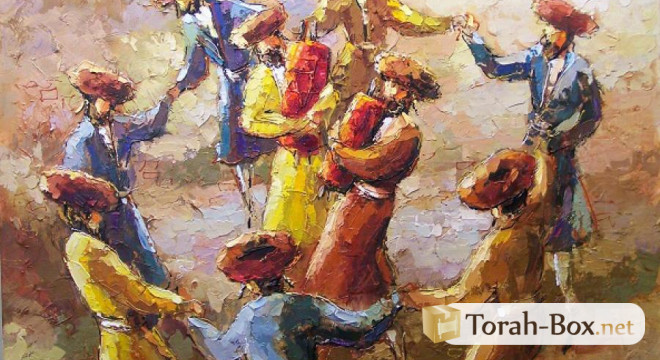
Vezot Habracha
Vezot Habracha: The Multiple Mitzvot
The very final Parsha in the Torah contains the first Passuk that we teach our children; “Torah Tziva Lanu Moshe, Morasha, Kehillas Yaakov[1].” This passuk is the source of the concept that there are 613 Mitzvos (Taryag Mitzovs); The Gemara says that the gematria of the word, ‘Torah’ is 611, which teaches us that Moshe Rabbeinu instructed Klal Yisroel in 611 mitzvos and Hashem directly told them the remaining two, those of belief in G-d and the prohibition to follow other gods, bringing the total to 613[2].
This Gemara causes the commentaries great difficulty in defining which commands in the Torah are included in the 613, because, in truth there seem to be far more commands than these 613. The brother of the Vilna Gaon zt”l addresses this problem in ’Maalos HaTorah’. He quotes the Gaon himself explaining that the Torah is compared to a tree; a tree has roots and has many branches that sprout from the roots. So too, the Torah has 613 roots which comprise the Taryag Mitzvos, but that there are numerous branches that sprout from each root, all of which are Torah obligations. He goes further and writes that all the stories in the Torah are replete with ‘mitzvos’ that obligate us in numerous ways. Each lesson derived from the actions of the characters in the Torah constitutes a Torah obligation, consequently the number of ‘mitzvos’ in the Torah becomes incredibly great. The Gra explains that this is the explanation of Chazal’s saying that Hashem wanted to benefit the Jewish people by giving them many mitzvos - it does not just refer to the 613 of Taryag, rather to the thousands of obligations that arise from all the stories in the Torah[3].
With this understanding we can approach learning Torah with a new perspective. When the Torah tells us an account of an event, it is not merely telling us an interesting historical incident, rather it is teaching us valuable lessons about how we should live our own lives. Rav Noach Weinberg Shlita explains that the Torah is not merely a ‘history book’, rather it is called ‘Torah Chaim’, which is literally translated as ‘Instructions for Living.’
This lesson is highly relevant as we complete the annual cycle of learning and celebrate the gift of Torah. Torah is not merely a highly intelligent and interesting book, it is Hashem’s detailed instructions of how to conduct our lives. This applies to all aspects of Torah, including the Gemara and Halacho. However, it is perhaps most apparent with regard to the Chumash. One talmid chacham pointed out that it is possible for a person to miss this vital point and instead primarily look to the Chumash as a source of a ‘good vort’ on the Parsha to be said over at the Shabbos table! There is nothing wrong with having a good vort, however, it is important to remember that the Chumash is Hashem’s instructions about how to live our lives.
Rav Tzvi Kushelevsky Shlita makes this point in a haskama to a sefer that emphasizes the relevance of Torah to our daily lives. He quotes the Ramban in his Iggeres: “When you rise from studying a sefer, ponder carefully what you have learned in order to see what there is in it that can be put into practice.” Rav Kushelevski comments:
“The above words, written by the Ramban in a famous letter to his son, instructs us to search for the practical application of everything we learn in Torah. As lofty and essential as this goal is, however, it is one that often eludes us. We tend to perceive our Torah study as an intellectual pursuit, divorced from the reality of our lives.[4]”
Simchat Torah is a day when we celebrate the great gift of Torah. May we all be zocheh to utilize this gift to its fullest.
[1] Vezot HaBracha, 33:4.
[2] Makkos, 23b-24a.
[3] Hakdama to Maalos HaTorah.
[4] Haskama to ‘Relevance’ by Rav Dan Roth Shlita.
Torah-Box.net Account
To access the entire Torah-Box.net website, sign up for free in less than a minute.
Weekly Parsha
 Candle Lighting - New York
Candle Lighting - New York
Friday December 19th, 2025 at 16:13 *Shabbat ends at 17:17 *
change my location
* Times given as an indication, check the times of your community








